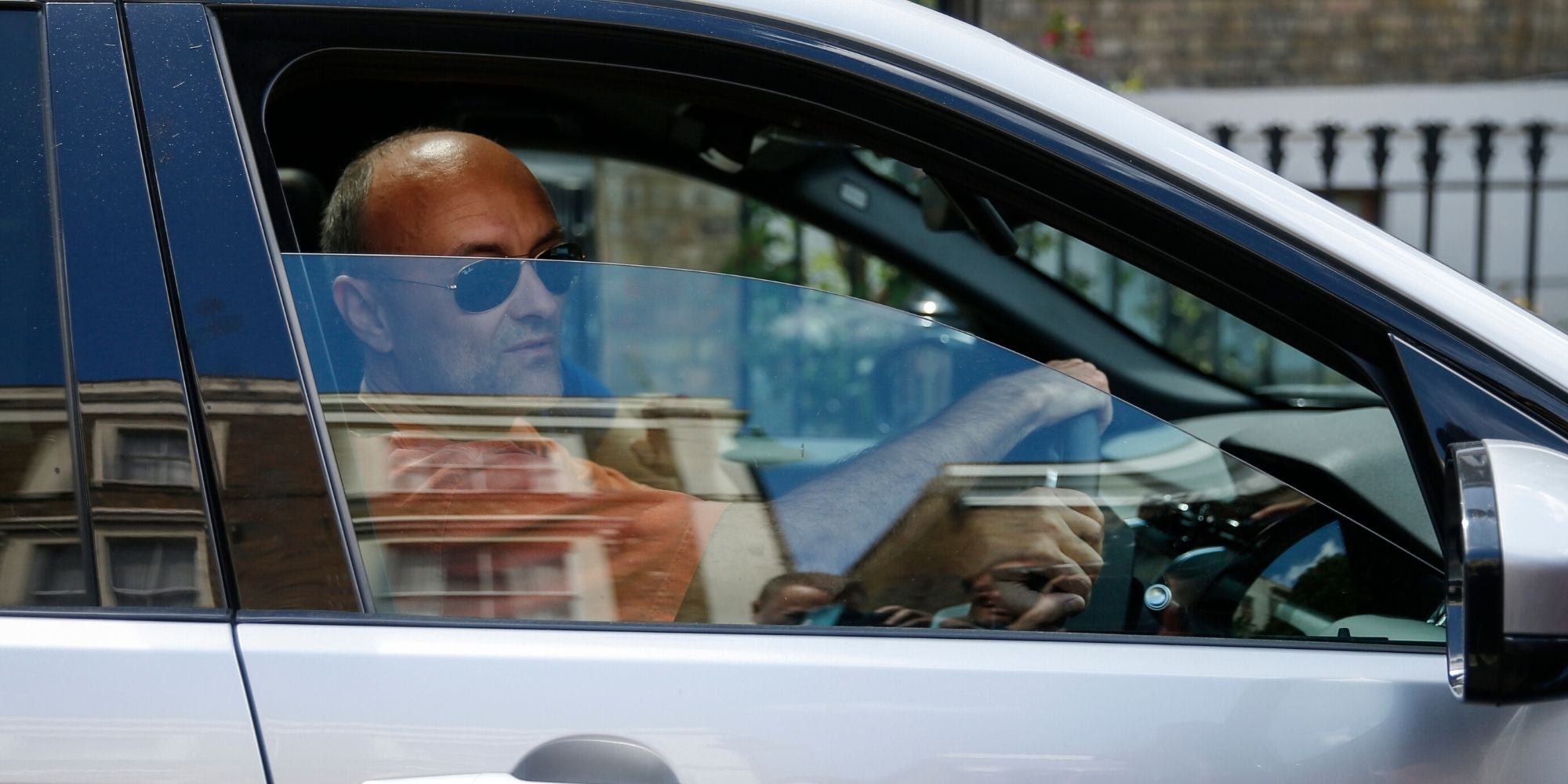Dominic Cummings: Police have fined at least two people who made same journey from London to County Durham
Two were issued with penalties after travelling from London to Peterlee a week after Mr Cummings' trip
Durham Police have fined at least two people who travelled to the county from London, it has been revealed.
Dominic Cummings, the chief adviser to Downing Street, was not reprimanded for making the same journey when his wife had coronavirus symptoms.
They took their young son to stay on his parents’ farm days after the start of the UK lockdown, where Mr Cummings claimed it was easier to self-isolate and seek childcare.
A Freedom of Information (FoI) request by the BBC showed that Durham Constabulary fined two people who journeyed from London to Peterlee about a week later, on 8 April.
The two people travelled together but were from different households, which was against the rules at the time.
Fines for breaching coronavirus laws are handed out on the spot by police officers, and Mr Cummings was not stopped during his journey.
An investigation by Durham Constabulary found that he had not breached the Health Protection Regulations by driving from London to County Durham, but might have with a trip to Barnard Castle on Easter Sunday.
A spokesperson said “there might have been a minor breach of the regulations that would have warranted police intervention".
"Had a Durham Constabulary police officer stopped Mr Cummings driving to or from Barnard Castle, the officer would have spoken to him, and, having established the facts, likely advised Mr Cummings to return to the address in Durham," a statement added.
“Had this advice been accepted by Mr Cummings, no enforcement action would have been taken.”
Police said there was “no intention to take retrospective action in respect of the Barnard Castle incident since this would amount to treating Mr Cummings differently from other members of the public”.

The FoI data only covered the first two-and-a-half weeks after the regulations came into force on 27 March.
Police across England and Wales issued around 3,200 fines in that period, but the total has now risen to more than 14,000.
Durham Constabulary had handed out 137 fines in total by 11 May, provisional figures show.
Calculations by The Independent show the force was issuing them at an average rate when compared to other areas by population size.
Both the government and police have refused to review fines handed out under coronavirus laws because of Mr Cummings’ trip.
“We have no plans to conduct a review of fines issued so far,” a spokesperson for the National Police Chiefs’ Council said on Wednesday.
“The legislation includes a non-exhaustive list of reasonable excuses for leaving home. Policing’s approach has been to engage, explain, encourage and only enforce as a last resort. That position has been promoted consistently since the introduction of the restrictions.
“If anyone believes they have been issued a fine in error – for any reason – they can challenge it at court.”
The Health Protection Regulations make it illegal to leave home or be outside “without reasonable excuse”.
But the law lists several exceptions including “to access critical public services, including childcare or educational facilities”.
Mr Cummings also went to work in Westminster while his wife was ill and visited a hospital to pick up his son after developing Covid-19 symptoms himself.
He said he made a trip to Barnard Castle on Easter Sunday to test his eyesight.
Boris Johnson has rejected calls for Mr Cummings to face an inquiry over his actions, suggesting it would not be a “very good use of official time” during the pandemic.
Human rights organisations had previously called for a wider review of fines, raising concerns that “a significant number of fixed penalty notices have been wrongly issued”.
A lawyer previously told The Independent that most people will have paid the fines because there is no route of appeal other than refusing to pay and risking prosecution.
While restrictions were relaxed in England on 13 May, the default fine was increased from £60 to £100.
The same changes were not made in Scotland, Wales and Northern Ireland, sparking further confusion over the extent of the law.
